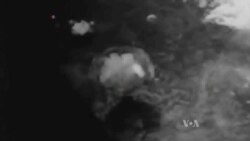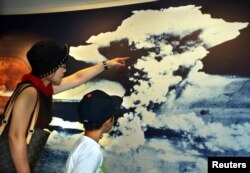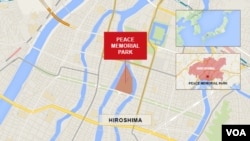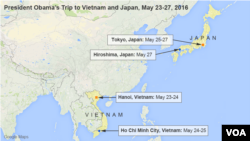During what may be his last tour of Asia, President Barack Obama will make history as the first sitting U.S. president to visit Hiroshima, the site where the U.S. dropped the first atomic bomb in wartime.
Even before the president sets foot on what many consider hallowed ground, the announcement has sparked new debate on the decision to drop the bomb, and whether the United States should apologize or if a U.S. president should even visit.
Obama is expected to make a statement from Hiroshima, and will likely have to navigate a symbolic minefield.
Nearly 71 years ago
It was a moment that literally changed the world nearly 71 years ago when a mushroom-shaped cloud lit up the sky over Hiroshima, and three days later over Nagasaki.
About 140,000 people in the two cities died within the year, and survivors and their children have faced untold suffering due to radiation poisoning.
The U.S. rationale for the decision was to bring years of Japanese aggression to a quick end, potentially saving many more lives than would have been lost in a U.S. invasion. But many Japanese see it differently, saying innocent men, women and children were unnecessarily incinerated and poisoned.
'Symbolic act'
U.S. Secretary of State John Kerry visited Hiroshima last month. He said he was deeply moved and that “every human being” should visit the site.
Some experts think that should include the U.S. president, among them Chris Appy of the University of Massachusetts.
“I was very pleased that he decided to go. I think just showing up is important symbolic act that many Japanese have wanted for a long time," Appy told VOA.
But Appy said he thinks the United States should also apologize for the atomic bomb attacks.
“I am disappointed that the president appears not willing to apologize. After all I think in our personal lives, we consider it the height of maturity when an adult is willing to take responsibility and accountability for actions," he said. "Particularly actions that lead to the suffering of the innocent victims.”
Others strongly disagree, including Brian Harding of the Center for American Progress, who told VOA, “The president will not be issuing an apology and the Japanese government is not asking for one either.”
'Special responsibility'
White House officials have made clear that the president will not apologize. White House Press Secretary Josh Earnest said, “What I think the president does appreciate is that President [Harry] Truman made this decision for the right reason.”
But Earnest said the United States does have a “special responsibility” as the only country to have ever used an atomic bomb to work tirelessly for nuclear non-proliferation.
Others, including many older Americans and war veterans oppose Obama’s visit.
Republican Senator John McCain is a decorated Vietnam War veteran who ran against Obama in 2008 for the presidency. He told VOA he simply does not see the point of the trip.
“I'm not in the business of telling the president of the United States where to go. But where, what is the purpose of it? In some ways, you dredge up very unpleasant memories, but if the president wants to go somewhere he can," McCain said.
It is not yet clear whether the president will meet with any of the few remaining survivors of Hiroshima and Nagasaki.
Obama will be accompanied in Hiroshima’s Peace Memorial Park by Japanese Prime Minister Shinzo Abe. They will lay a wreath, and Obama will make a statement.
The White House said the leaders will highlight the horrors of war and the need to work toward a world without nuclear weapons.









